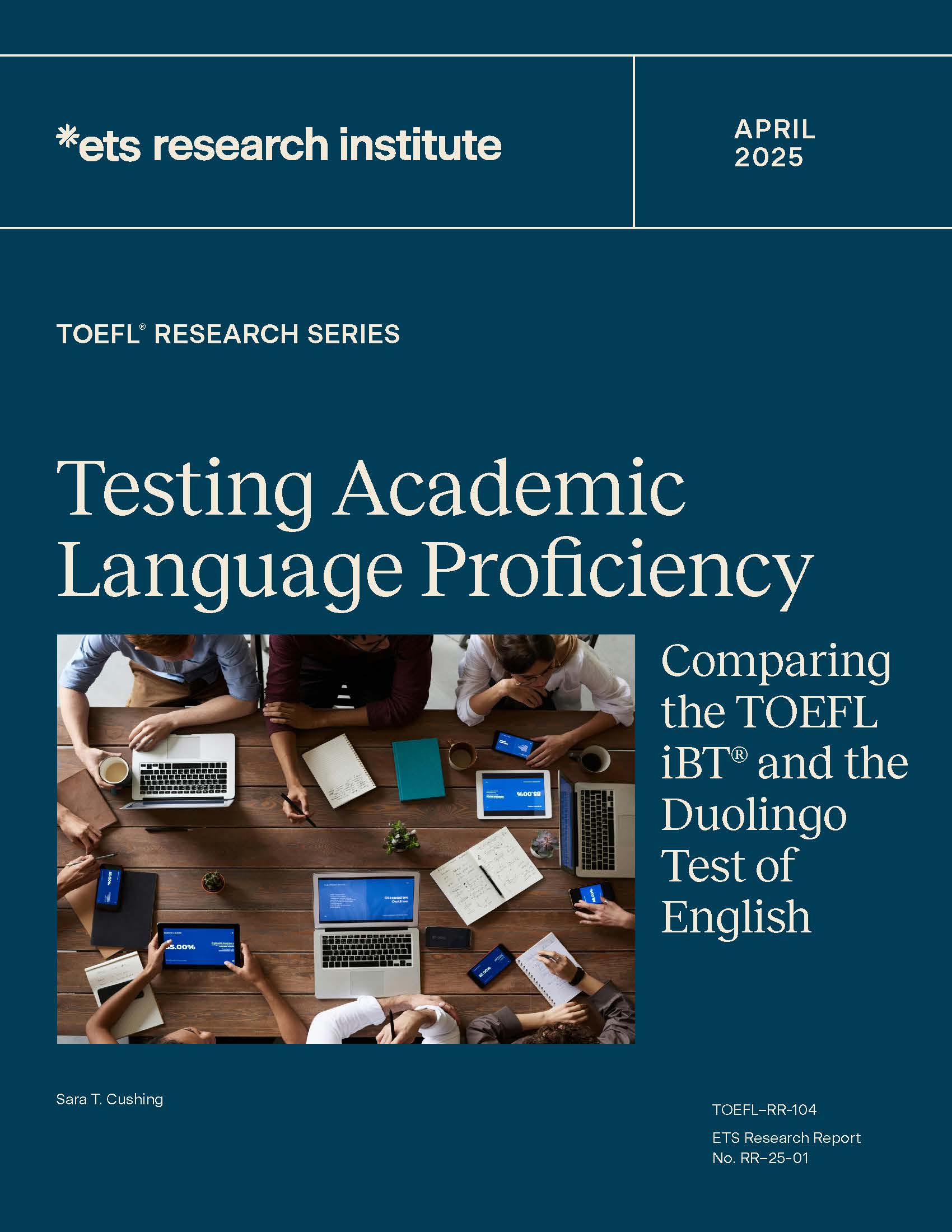Testing Academic Language Proficiency: Comparing the TOEFL iBT® Test and the Duolingo English Test
DOI:
https://doi.org/10.64634/0437kw56Keywords:
academic language proficiency, admissions tests, TOEFL iBT, Duolingo English Test, construct validityAbstract
This report provides an in-depth comparison of TOEFL iBT® and the Duolingo English Test (DET) in terms of the degree to which both tests assess academic language proficiency in listening, reading, writing, and speaking. The analysis is based on publicly available documentation on both tests, including sample test questions available on the test websites. For each skill area, the construct as defined by the test developer is discussed, followed by a review of the test content and the cognitive processes involved in completing items related to that skill. The results are evaluated against three propositions from the TOEFL® validity argument (Chapelle et al., 2008). The analysis suggests that although both tests provide evidence of general language proficiency, the input to test takers and the test items for TOEFL iBT are more academic in nature, both in terms of the content and the cognitive demands of the task. Some of the aspects of TOEFL iBT that make the test relatively more academic include extensive reading and listening passages and integrating information from multiple texts in speaking and writing. The report also highlights some of the ways in which a commitment to automated item generation and scoring limits the ability of a test like DET to fully represent the construct of academic language proficiency.
Suggested citation: Cushing, S. T. (2025). Testing academic language proficiency: Comparing the TOEFL iBT® test with the Duolingo English Test (TOEFL Research Report No. RR-104). ETS.

Downloads
Published
Issue
Section
License
Copyright (c) 2025 ETS

This work is licensed under a Creative Commons Attribution-NonCommercial-NoDerivatives 4.0 International License.

